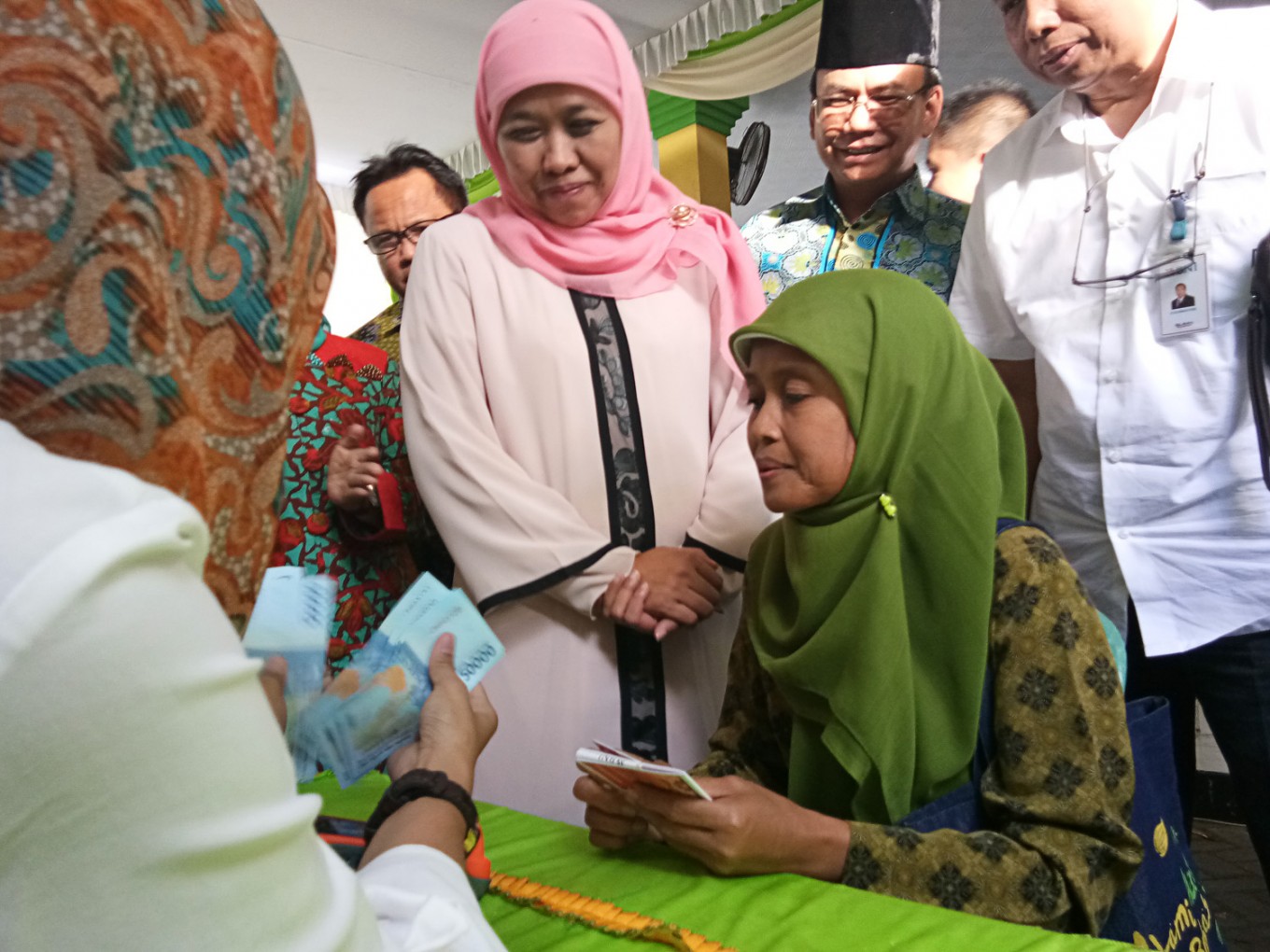Popular Reads
Top Results
Can't find what you're looking for?
View all search resultsPopular Reads
Top Results
Can't find what you're looking for?
View all search resultsGovernment to front-load social, rural spending to boost household expenditure
Finance Minister Sri Mulyani Indrawati said the front-loaded spending was necessary to minimize the potential impacts of growing global economic uncertainty on the country’s GDP.
Change text size
Gift Premium Articles
to Anyone
T
he government will front-load its spending on social welfare and rural development to boost household expenditure in an effort to counter the potential economic impacts of the coronavirus epidemic.
Finance Minister Sri Mulyani Indrawati said the front-loaded spending was necessary to minimize the potential impacts of growing global economic uncertainty on the country’s GDP.
At a press briefing in Jakarta on Friday, she said that a large portion of the year’s social spending, for programs such as the Family Hope Program (PKH), School Operational Assistance (BOS) for elementary and high schools, the non-cash food program as well as village funds for rural development, would be disbursed in the first quarter of this year.
“We will increase social spending to prevent household spending from falling,” she explained.
Front-loading means the government will disburse a larger portion of its yearly allocation for certain programs and projects earlier in the fiscal year.
Although Indonesia maintained its economic growth at 5.02 percent year-on-year (yoy) in 2019, according to Statistics Indonesia (BPS) data the country’s quarterly growth reached only 4.97 percent yoy in the fourth quarter of last year.
The slowdown in the last three months of 2019 was caused by a decline in household spending, which accounted for more than 50 percent of the country’s GDP growth during the period.
Read also: Indonesia sees gloomy outlook on economy as growth falls below 5%
Speaking at a seminar on Indonesia’s export prospects in Jakarta on Tuesday, Center of Reform on Economics (CORE) director Mohammad Faisal estimated that the economic growth rate would fall to 4.9 percent this year from 5.02 percent last year.
This, he argued, was primarily because the coronavirus outbreak that emerged in late December 2019 in Wuhan, China, was expected to increase pressure on a global economy that had already been burdened by the prolonged United States-China trade war and growing US-Iran tensions
Like most of analysts, Sri Mulyani also expressed fear the coronavirus outbreak would further derail the global economy, although there have been signs the US-China trade war may be coming to an end with the signing of the so called "phase one" trade agreement between the two countries in mid-January.
“The deal brought positive momentum for us in the beginning of this year, but it was quickly buried by news of the virus,” she said.
Despite the virus outbreak, Bank Mandiri analysts have confidence the government’s plan to front-load social welfare and rural development spending will help keep household spending strong in the first half of this year.
The government said it would disburse village funds in three phases, as it did last year. However, 80 percent of the funds will be disbursed in the first half of the year, an increase from 60 percent over the same period in 2019.
The change will mean Rp 132.5 trillion (US$9.5 billion) will be disbursed for village funds in the first half of the year, 18 percent higher than over the same period in 2019.
The front-loaded spending, coupled with expectations of an improved rice harvest in March and April thanks to better weather, is expected to provide enough support for the household spending growth to remain at 5 percent in 2020.
However, as the coronavirus infection count and death toll continues to rise, Bank Danamon economist Dian Ayu Yustina said in a research report published on Feb. 6, that the global economy may take time to recover, as the outbreak would force China to place some of its cities under quarantine and close flight routes.
She also warned the outbreak could pose risks to Indonesia’s economy due to a decline in the number of Chinese tourists, who account for 12.8 percent of the country’s foreign tourist arrivals. It could also potentially delay Chinese investment projects in the country, she said.
Other than Chinese investment, State-Owned Enterprises (SOEs) Minister Erick Thohir said on Monday that investment from other countries could also be hampered, including the newly signed US$6.8 billion investment deal with the United Arab Emirates (UAE), should the virus continue to spread over a prolonged period of time.
While the forecast for the virus’ impact on the Indonesian economy might be bleak, Dian said Indonesia was less vulnerable than other countries because of its relatively low trade with China, which receives only 16 percent of Indonesia’s exports.
She predicted GDP growth in 2020 to remain steady at 5 percent this year with household spending to grow at 4.9 percent.










